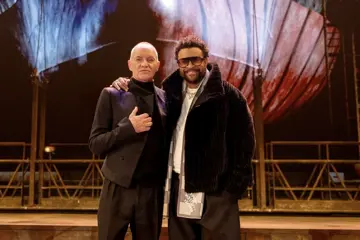As Victoria approaches the 90% double-vaccination threshold, Premier Daniel Andrews has confirmed further easing of restrictions in the state.
From 11:59pm tonight, live music venues across Victoria will have density constraints removed.
“As an industry, it gives us far more confidence in being able to book shows, book tours and ensure that events are going on; it’s something that we haven’t had for the past two years,” Stephen Wade, CEO of Select Music and Chairperson of the Australian Live Music Business Council (ALMBC), told The Music.
“If we abide by the legislation and the rules that are put in place, we’ll have very little difficulty in delivering those shows. That provides [confidence] and it’s something that we haven’t had and that we desperately need just for the morale of the industry, across the board.”
Music Victoria CEO Simone Schinkel added: “We have been waiting for this day for the past 22 months. It has been an extremely challenging journey to get here. Sure, we are now trying to go from 0 to 200%, which will have its own problems, but these are good problems to have.
Don't miss a beat with our FREE daily newsletter
“If you missed live music, then now is the time to show us just exactly how much by: Paying for tickets, ideally purchasing them in advance (seriously no more door lists!), turning up early and seeing all the support acts, taking home all the merch you can carry, and coming back again and again and again (and bringing more and more people along with you). We’ve missed you too.”
Live Performance Australia Chief Executive Evelyn Richardson noted that nearing the 90% vaccination target is “an incredible result and it’s great news for our industry”, but there’s still challenges ahead.
“It’s critical that we get our two largest markets reactivated as quickly as possible. However, as we transition to living with Covid, there are still risks as we move into 2022, given the ongoing possibility of targeted public health restrictions being reimposed,” Richardson said.
“The impacts of Covid on the live entertainment industry over the past 22 months have been significant. Removing density restrictions and lifting borders, both domestic and international, are critical to allowing us to get our people back to work, our shows back on stage, our touring networks re-established, and our audiences back to live events supporting not just our artists and industry, but all of the associated upstream and downstream businesses which depend upon live events for stimulus.
“We welcomed the Victorian government’s announcement for an events insurance scheme earlier this week. We would like to see NSW and other states establish a similar scheme as well as the Federal Government step up to con-contribute so the industry has a national scheme in place. This will give the industry confidence to invest and ensure we deliver a pipeline of events across the country.”
One of the biggest issues the music industry currently faces is a skills shortage, due to workers being forced to find other work throughout the pandemic and a drop in those entering in the first place.
“We’ve lost a lot of people," Wade said. "So once we get back to the point where you’ve got three major stadium tours happening at one time or two big festivals towards the end of next year, will we still have the volume of people and equipment to be able to do those things?
“So, we have to be really on top of that and we’ve still got to work through insurance elements. Obviously, the Victorian package that was just announced is incredible; it gives promoters in that state an edge over everybody else in the country because they’ve got that backup from the government.”
Yesterday major Aussie festival player Red Hill Entertainment, which oversees NYE On The Hill, UNIFY Gathering and more, revealed a multi-year collaboration with creative industries education provider Collarts to tackle that shortage as the industry sets its sights on a long recovery out of the pandemic.















